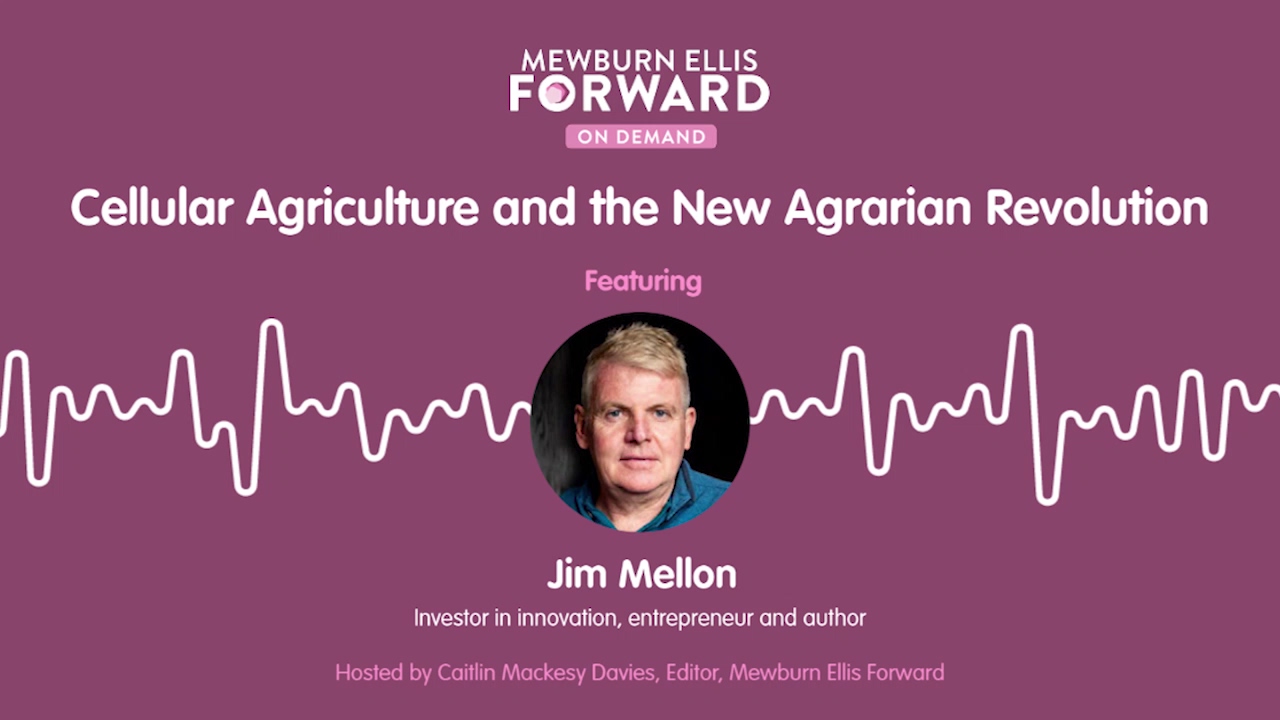We are seeing a food revolution take place before our eyes. With increasing global demand, animal welfare issues and pressing environmental concerns, many are questioning whether conventional agricultural practices are sustainable.
These challenges are driving exciting new developments in ‘future food technologies’, such as those which involve Cellular Agriculture, plant-and microorganism-based alternative meat products, genetic manipulation of plants, or which employ novel food sources such as insects. Such innovative technologies have the potential to provide sustainable, affordable and secure nutrition for the ever-growing global population.
Cellular Agriculture - also commonly known as cultured meat or clean meat, involves growing populations of animal cells, often skeletal muscle cells from cows and pigs, by culturing them in vitro. Studies have suggested that lab-grown meat will use a fraction of the land, water and antibiotics used in traditional agricultural practices, and will be associated with dramatically reduced greenhouse gas emissions. Cellular agriculture doesn't stop there though - it can be used to engineer a whole host of animal derived products such as milk, leather and silk. We have seen significant investment in this area with US based start ups Just and Memphis Meats attracting significant attention and governments are starting to take notice - Singapore has recently allocated substantial funds to R&D in this area. Investment firms such as Agronomics are nurturing portfolios of firms that will help cultured meat come to fruition as a go-to consumer product.
Plant based proteins - in the search for sourcing more protein for human consumption, the plant based protein alternative market is now booming. Plants and fungi have a lower carbon footprint and healthier nutritional profile compared to meat from livestock. Whilst traditional plant-based meat alternatives made from processed plant material, such as tofu, tempeh and seitan, have been eaten for centuries, in recent years plant-based meat analogues (PBMAs) have emerged as a new class of plant-based proteins. Their aim is not to simply to provide a plant-based protein source, but to closely mimic conventional meat - that is to say, they are not just an alternative to meat, but a like-for-like substitution.
Plant engineering technologies - faced with intense pressure to increase the productivity of crops, scientists and plant breeders are increasingly looking at methods of engineering crops. Developments in marker assisted breeding and genomic selection breeding can reduce the time taken for the development of new varieties of crops. Developments in computational biology and genomics approaches can be used to identify candidates for gene-editing, a notable example being RNA-guided CRISPR technology.
It is clear that in the search for more sustainable food sources, there are plenty of opportunities for innovation. Public perception and regulation will play a significant role in determining the impact of these technologies. Building a strong brand will be crucial in fostering public trust. Innovators will need to approach regulatory and consumer confidence challenges as seriously as they would any technical hurdles.


.png)
.png)

.png)










